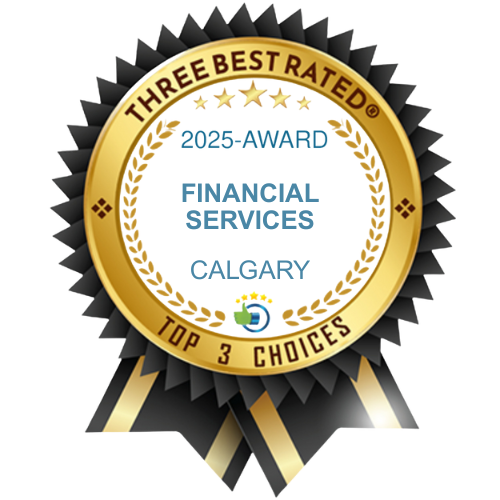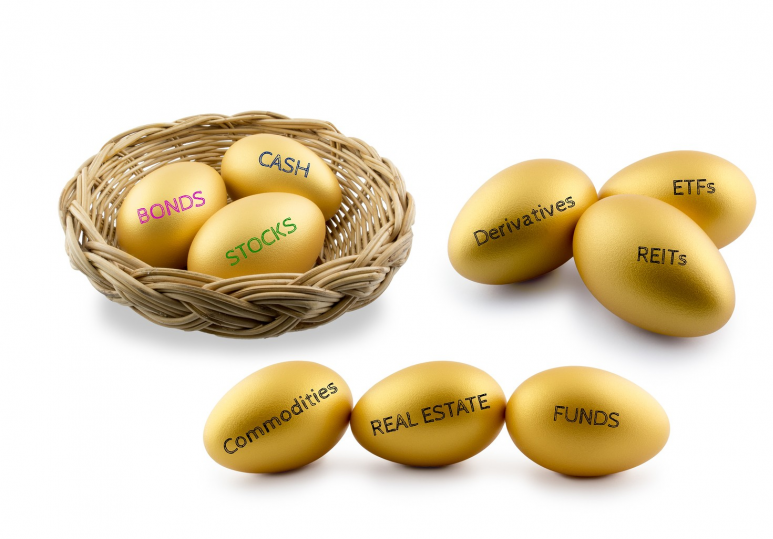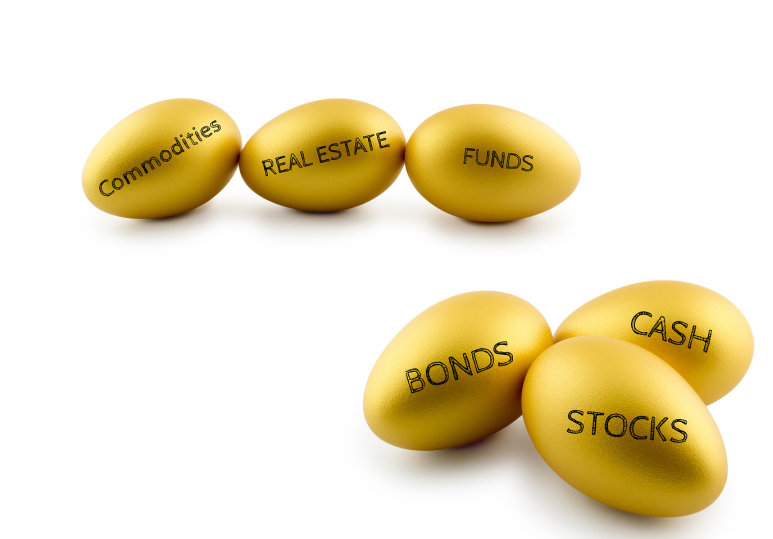Navigating Choppy Financial Waters
The stock markets have had a rough start to 2021 and you may be wondering what's going on? The big story is interest rates and the threat of inflation. The truth is there always is a crisis somewhere.
Currently, it is the risk of inflation and rising interest rates that are feeding the fear.
Inflation occurs when there's too much money in the system (ie: from Government stimuli like quantitative easing and more recently covid handouts), and it is a significant risk for everyone, especially retirees.
Because of the government stimulus and action by central banks, there's a lot of money in the system and it is short-term rates that are being impacted the most. The 10-year US Government bond is now just over 1.7%. Six months ago it was at 0.68%. (In October of 2018 it was 3.15% but that's another story.)
The market is now trying to digest this. The rule of thumb is that low-interest rates are good for stocks. We all know that near-zero interest rates are not sustainable. A rebalancing will take place over the coming months. The volatility we are seeing is a normal part of the market cycle. At this point, no one knows how effective the vaccine will be or how quickly the economy will bounce back. The consensus is that the economy is going to have a rapid reopening at some point, but when, is still unknown. When it does, things will heat up and everything is going to cost more.
We are living in a time of extremes.
My friend Alvin was telling me about his brother-in-law selling his house outside Toronto. He had this new home built for about $450,000 less than 3 years ago. He decided to list it last month and his realtor set the price at $699,000. His first offer after just a few days was $720,000, but then someone bought it for $800,500. This is not only bizarre, it's disturbing.
A year ago Tesla stock was trading at $86 and peaked at close to $900 in January. It's now about $650. There's no rationale for this and it's not good for anyone.
Here's the topper though. A pair of Michael Jordan rookie cards that someone bought in December of 2019 for $32,000 just sold at auction for $738,000 in January 2021.
Right now, we stay the course and prepare for increased volatility, but keep in mind that this is not usual and we will navigate this storm. There is no reason to change the plan at this point.
You may hear talk about a rotation from growth stocks, like technology, to value stocks. This rotation is expected, but that doesn't mean we switch from one to the other at this point. We recommend owning both. Growth stocks outperformed everything in 2020, however as 2021 progresses, it would stand to reason that the rest of the market, which didn't do so well in 2020, will catch up.
Year to date market returns in 2021:
TSX: +7.57%
Dow Jones: +7.95%
S&P 500: +5.75%
NASDAQ: +4.07%
5 year returns:
TSX: 41% or 8.2%/year
Dow Jones: 86% or 17.2%/year
S&P 500: 92% or 18.45%/year
NASDAQ: 176% or 35%/year
Some key points to keep in mind:
- Inflation is increasing and so are interest rates. Banks have already increased mortgage rates for renewals these past 3 weeks. This isn't going to happen as fast as it may seem. It will only happen a quarter of a percentage at a time.
- Expect more volatility over the next few months.
- A balanced, well-diversified portfolio has served us well in the past and will continue to do so moving forward.
- There's no need to make any investment changes right now and we evaluate this regularly.
- We never try to time the markets or chase short-term returns.
- We always have to be prepared for a worst-case scenario. We do this by having access to some cash reserves and using some funds with less volatility to fund your lifestyle needs.
- We use top-quality expertly managed funds that have proven to perform consistently well over time. We trust the portfolio managers to continue to do their job well.
Ultimately, it's our job to plan wisely and find the best investments for growing your money and for creating consistent, sustainable income strategies. Everyone should have their basic income needs covered by guaranteed sources of income from pensions and a 1-2 year cash reserve during retirement. This is money that is easily accessible in times of volatility.
How we view and understand risk is more important now than ever. In fact, the greatest risk management tool we have is learning how to manage our own emotions and behaviours. Emotional decision-making can be our greatest mistake if not kept in check. What is your emotional reaction to volatility? Is it fear, panic, breaking out in a cold sweat, wanting to sell everything, lashing out at others?
Risk has to be managed continually. Life is at risk. You can manage financial risk by keeping some cash on hand, timing purchases of large ticket items or spending, utilizing a cash wedge strategy, diversification, using different types of annuities at certain ages and navigating choppy waters wisely. This is how we help you.
There's a difference between Risk and Volatility
Risk management - the practice of acknowledging that risk cannot be avoided, assessing the level of risk and how the risk can be managed by one of the following methods:
- Risk avoidance - sometimes the risk of damage or suffering loss is too high the activity can be avoided. ie: Walking on an icy sidewalk.
- Risk mitigation - protect self from suffering loss by putting measures in place, like wearing protective equipment (Masks, gloves, social distancing) or putting on your seatbelt.
- Share the risk - if you owned one rental condo you have concentration risk. If you owned 4 rental condos, you have spread your risk more broadly and if one unit is empty you can absorb an income loss on one unit at any given time.
- Transfer the risk - this is what home fire insurance is. For a fee, you have transferred the risk of loss to the insurance company, instead of taking on the risk of loss by yourself.
Understanding Volatility
Volatility is the measure of variance from the mean. If you think of normal conditions, like the weather, what’s a normal summer day in Alberta? Sunny and 23 degrees. A week of volatile weather may be hail storms, heavy rain and flash flooding - which although not unexpected, is volatile.
Investments have a degree of volatility. A GIC has no volatility in and of itself - the return is consistent with the term you locked in. With GICs, the risks are always interest rate risk and reinvestment risk. What is the likelihood that you need all of your money at one time? You just need some of it. It would then stand to reason that all of your money should not be treated the same. Some investments can handle more volatility than others due to being needed at different stages in the future. The decision on how to invest your money should be based on 3 factors:
- Timeline. If you have a 5+ year timeline then you can handle more short-term volatility for a better long-term return. If you need the money now or in the next few months, then you want to eliminate volatility risk.
- Objective. Why are you investing your money? Growth, preservation or income?
- Tax consequences. Interest income is taxed at the highest rate. You are earning a very low rate of return on your GIC’s and then, to add insult to injury, you have to pay 30.5% income tax on what little you did earn. This can actually cause a negative return on your investment.
Think about this for a moment...
What impact will short-term volatility have on your portfolio? In most cases, very little. If you are not taking out money, then it has no immediate impact. If you are taking out a monthly RRIF payment, then it can have a greater impact, but not as big of an impact as it would be if you were taking out an annual payment. If you are still in the accumulation phase, volatility means you are getting regular discounts if you are doing monthly PACs (pre-auth deposits).
We all have to be patient and learn how to ride out the storms and manage our emotions - we cannot avoid storms - and there will always be another one around the corner. We have to navigate them intelligently.
We think in terms of probabilities. What's the probability that the stock market is higher 12 months from now? Pretty good.
We think in terms of perspective. The US stock market was up over 40% over the past 2 years and now it has given back about 10% from the February highs - but still up on the year -well, that's still a very good 2-year average rate of return.
We think in terms of alternatives. What's the alternative to investing in the stock market? Bonds? GICs? High Yield Bonds - another name for junk bonds. Real estate?
We think in terms of education. What is the foundation for fear and panic? Lack of knowledge.
Education increases knowledge. Knowledge increases confidence. And, confidence increases peace of mind.
We were on our way to Florida one winter and we had a connection in Denver. When we got on the United Airlines plane in Denver the pilot welcomed us before departure and reminded us that he and the co-pilot were former Airforce pilots and combined, had over 50 years of experience flying commercial jets. Wow, if anyone could get us safely to Tampa it was these guys. I sat back, relaxed because I had full confidence in them and they didn't let us down.
That's why we send out our Sunday newsletters. We want to keep educating you about how the investment world functions. Most of you read our letters faithfully and rarely contact us when the water is choppy. Those who can't be bothered to read something for 5 minutes will be the first to panic at the sight of a raindrop. We have been deeply involved in the markets now for 23 years and we have gone through a lot of storms. This too shall pass.
I'll end with this:
As we have viewed hundred of portfolios here is what we have concluded is the most successful method: Follow a simple and disciplined approach to investing.
Choose a well-diversified portfolio that includes a selection of funds and then commit to contributing funds consistently. Don't obsess over it. Do not be spooked by the news media. Do not make knee-jerk reactions.
How can we help?
We are a husband and wife team and we work exclusively with financially successful individuals over age 55 who want to get their total financial house in order, get you on the same page, and start living the life they have always dreamed about. We want to help you - 'to get on with it.
Click Here to learn more about our process for creating your financial roadmap for retirement, getting your total financial house in order, and living your ideal lifestyle.
Retirement Income Planning Exclusively for Those 55+
Willis J Langford BA, MA, CFP
Nancy Langford CRS







